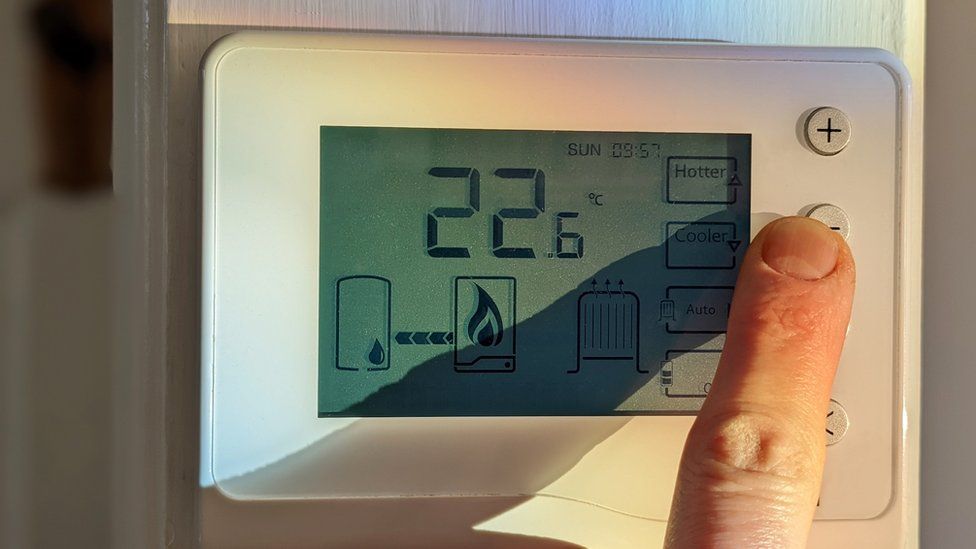 Getty Images
Getty ImagesHelp with energy costs has been extended for all households, but at a less generous level, meaning millions will still face higher bills.
The bill for a typical household will rise to £3,000 in April, from £2,500 now, Chancellor Jeremy Hunt announced.
Without this help, average bills would have gone up to about £3,740, according to analyst estimates.
Mr Hunt also announced additional cost-of-living payments for the most vulnerable.
This amounted to £900 to households on means-tested benefits, £300 to pensioner households, and £150 for individuals on disability benefit.
In addition, there will be an extra £1bn given to councils to help those “who might otherwise fall through the cracks”.
- What is the energy price cap and what will happen to bills?
- How to cut your energy bills
Although the typical household will see an annual bill of about £3,000 from April, this does not mean bills will be capped.
Every household pays for the energy it uses, and there is no absolute cap on the total cost.
Instead, the prices that energy firms charge per unit of energy will be capped, with the difference being made up using public money.
Market turmoil
Under previous Prime Minister Liz Truss, energy prices were capped for two years, leaving a typical household facing a bill of about £2,500 per year.
The plan, which was thought to cost up to £150bn, was to be funded through government borrowing – that is, it was to be paid back by taxpayers in the future.
Previous chancellor Kwasi Kwarteng then followed this with plans for about £45bn in tax cuts in his mini-budget in September.
However, following market turmoil which threatened the collapse of some pension funds and boosted mortgage rates to 14 highs, the government revised its plans.
In October, as part of government efforts to re-establish market credibility, Mr Hunt said he would review energy bill support while also reversing £32bn of the planned tax cuts.
He said at the time that the Energy Price Guarantee had been “the biggest single expense” of previous Chancellor Kwasi Kwarteng’s growth plan.
-
What’s happening to my energy bill?
-
11 hours ago

-
-
Expanded energy bill discount scheme under way
-
3 days ago

-
-
Six tips for cutting home energy bills this winter
-
20 October

-
